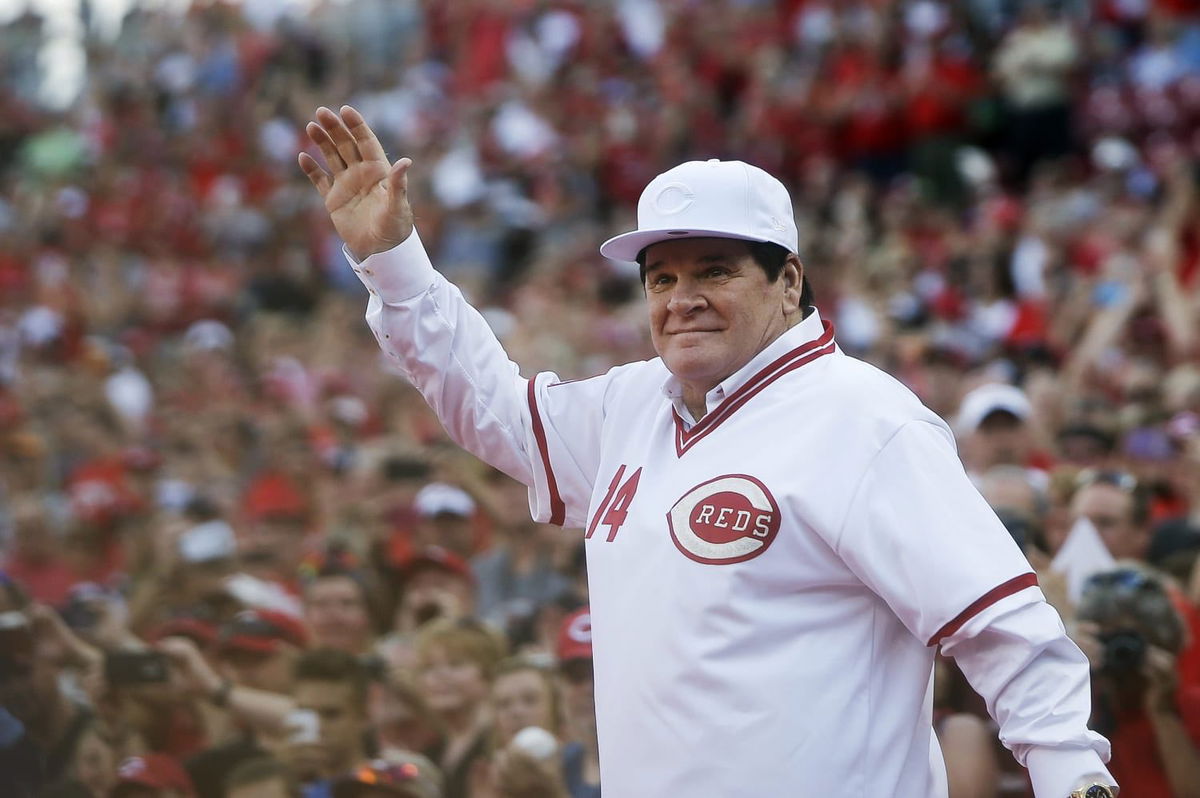

For decades, Pete Rose’s legacy was split into two—on one side, the game’s all-time hits leader with 4,256 knocks. On the other side, a man exiled from the sport he helped define. And finally, eight months after his death, Major League Baseball has taken a big step towards mending this divide.
Watch What’s Trending Now!
On Tuesday, in a shocking turn of events, Commissioner Rob Manfred officially removed Pete Rose and Shoeless Joe Jackson from the league’s permanent ineligible list. Manfred passed the rule that MLB’s punishment of banned individuals ends upon their deaths. This move, however, doesn’t mean they get a guaranteed seat in the Hall of Fame. But for the first time in over three decades makes them eligible for consideration.
Manfred explained his stance: “Obviously, a person no longer with us cannot represent a threat to the integrity of the game. A lifetime ban that lasts even after death offers no additional deterrent.” And the news was even shared by Bob Nightengale.
ADVERTISEMENT
Rob Manfred reinstates Pete Rose. He is now eligible for the Hall of Fame. Shoeless Joe Jackson too
— Bob Nightengale (@BNightengale) May 13, 2025
Rose has been banned since 1989 for betting on Cincinnati Reds games while he was managing the team. He had denied these allegations at first, but later, in his 2004 autobiography, he went on to admit it. Jackson was on the same list after he and seven other White Sox players were accused of conspiring with gamblers to throw the 1919 World Series. In 1991, the Hall of Fame changed its rules to bar any player on MLB’s ineligible list from being considered for induction, and hence, that closed the Cooperstown chances. But now that door is open again.
Interestingly, President Donald Trump may have played a quiet role. When Manfred visited the White House in April, Trump had told him to plan to pardon Pete Rose for a 1990 tax conviction. In March, Trump wrote in Truth Social, “I plan on signing a complete pardon of Pete Rose… He never betted against himself or the other team.” So it might have added another layer of national attention to the case.
ADVERTISEMENT
Now Rose is not eligible for voting by the Baseball Writers’ Association. His case will move to the Classic Baseball Era Committee in December 2027. He will need around 12 of the 16 votes to be inducted and make his place among baseball’s greats.
ADVERTISEMENT
It wasn’t just Trump; Pete Rose’s family fought for this reversal
Donald Trump might take little credit for this Pete Rose decision, but the real credit goes not to him but to Pete Rose’s family. His daughter, Fawn Rose, especially, never really stopped fighting for her father’s name to be cleared. A formal petition fact was submitted by Fawn and attorney Jeffrey Lenkov earlier this year. Then a meeting with Rob Manfred last winter, done without the media noise, might have cut the deal.

ADVERTISEMENT
And the reactions have been hot and cold already. However, for Marty Brennaman, the Cincinnati Reds broadcaster and also Rose’s closest friend, this is news that moved him. He told WLWT, “I can’t say I’m surprised, because I had a feeling something was going to happen close to the big night for the ballpark for Pete. It did not really surprise me as far as timing is concerned. I think it’s great for the family… think it’s great for all of his fans. I think it really adds to tomorrow night because there will be a celebratory air about this whole thing.”
Top Stories
Blue Jays Thrown Into Chaos Over Kyle Tucker Pursuit as Don Mattingly Moves to Foil Bo Bichette Hopes

Scott Boras’ Intentions Under Scrutiny After Cody Bellinger Outrightly Rejects Yankees’ $155M Offer

Who Are Kyle Tucker’s Parents? All about Mike Tucker and Lisa Fernandez

Cody Bellinger–Bo Bichette Uncertainty Grows as Scott Boras & Other Agents’ Market Misread Complicates Blue Jays’ Stance

David Stearns Admits Offseason Misstep as Mets Reportedly Roll Out $50M Kyle Tucker Push

The big night is, of course, Pete Rose Night at the Great American Ball Park, with the first pitch scheduled at 7:14—a tribute to his No. 14 jersey. Overall, though, it’s not just Pete Rose who benefited from Manfred’s change. Sixteen other individuals, who are also now deceased, were taken off that list. Rose sadly, is not here to witness this, but his family can finally see him off the bench!
ADVERTISEMENT
How do you feel about this change? Let us know in the comments.
ADVERTISEMENT
ADVERTISEMENT
ADVERTISEMENT

